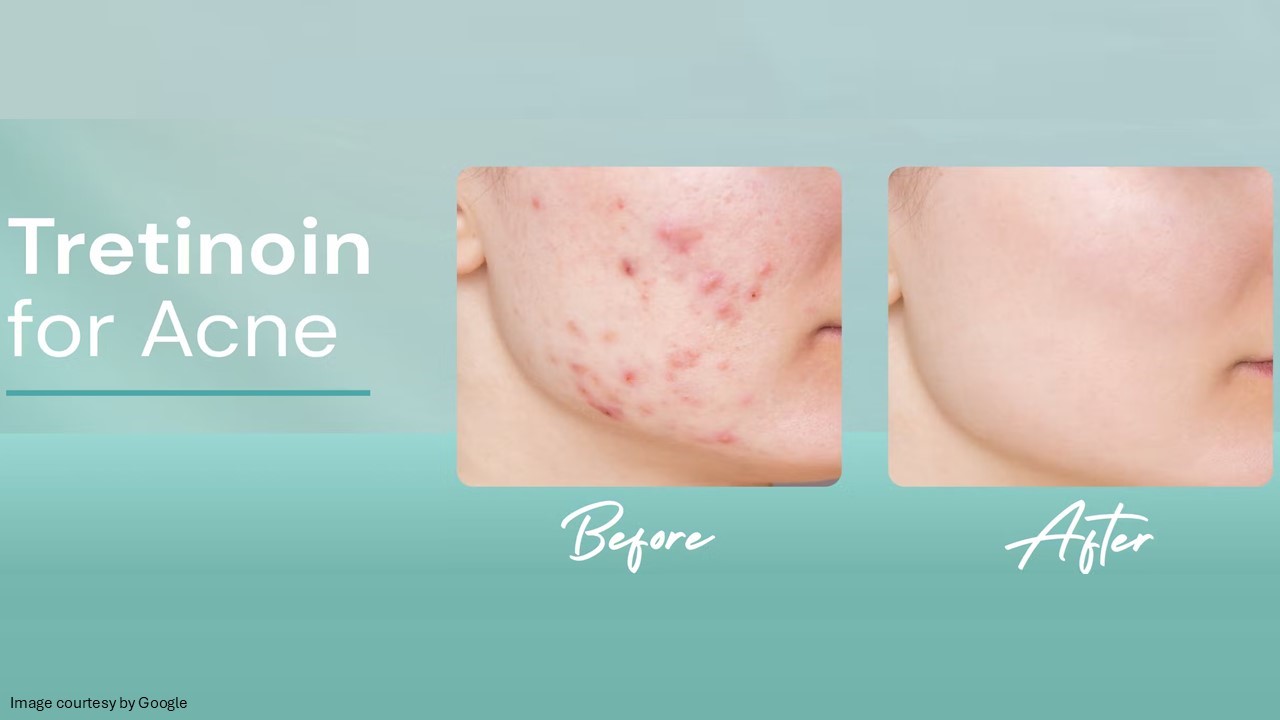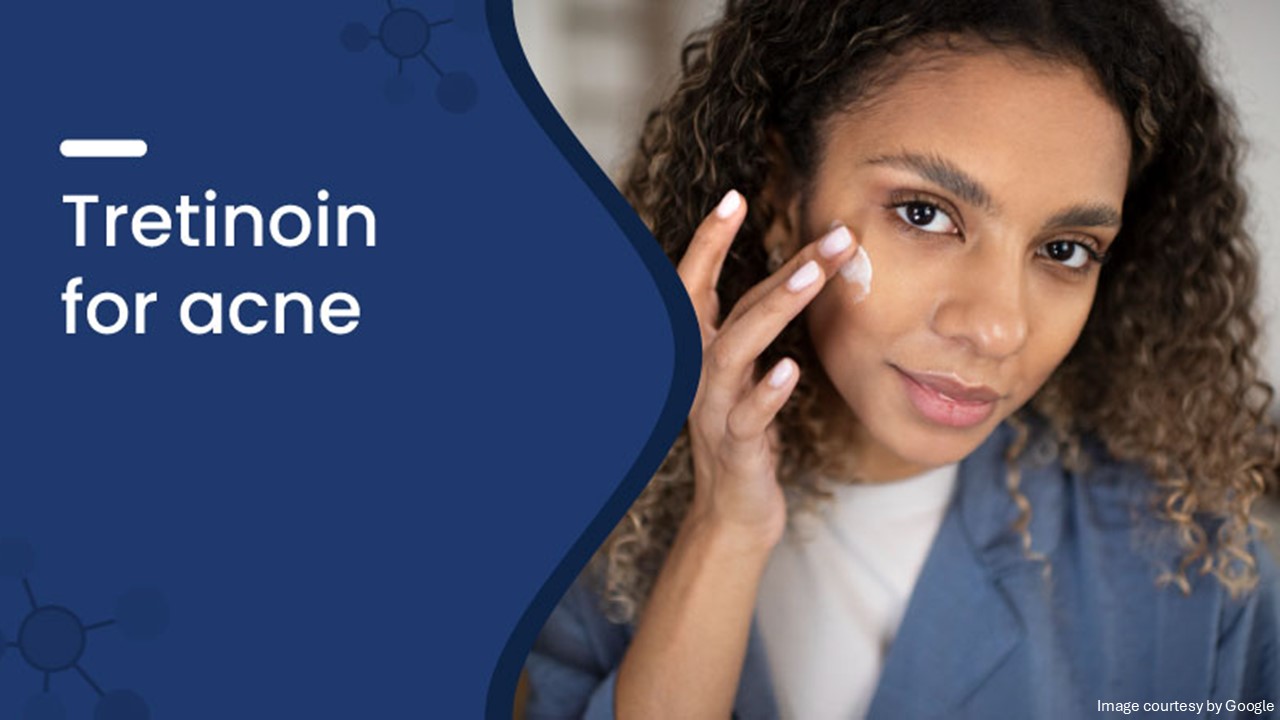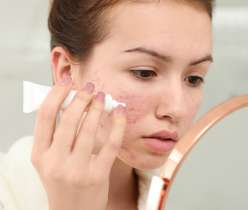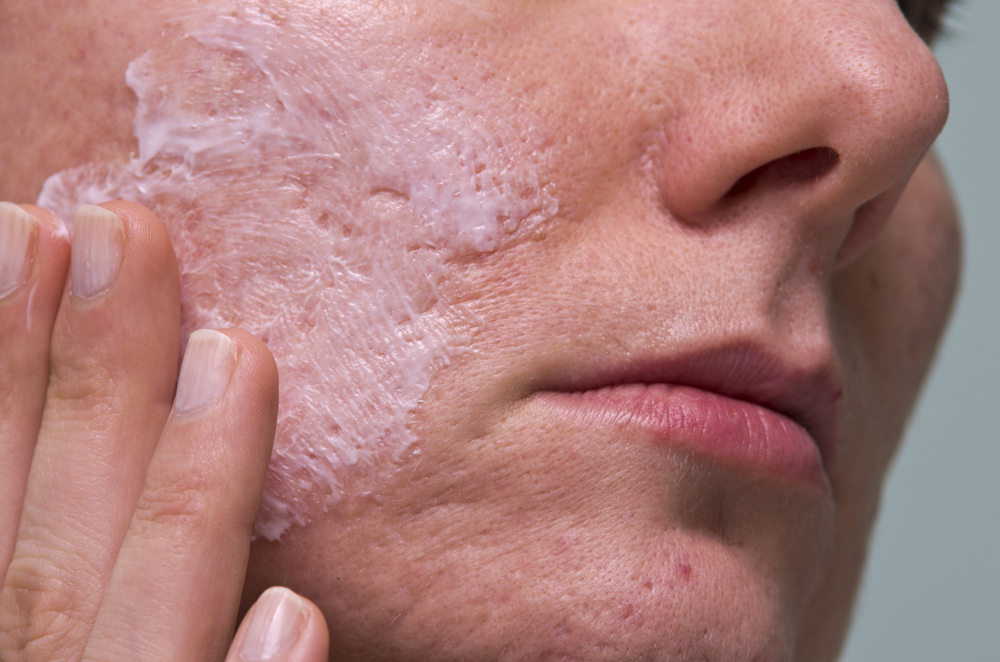Tretinoin is one of the widely prescribed topical treatments for acne and spots. This article aims to provide evidence-based recommendations for tretinoin acne medication to guide the clinical management of acne in adults and adolescents.
Understanding tretinoin: What it is?
Acne is one of the most common skin issues diagnosed and treated by dermatologists among Americans. The chronic inflammatory skin disease often requires prolonged treatment for satisfactory results. When treating all types of skin issues, topical therapies are appropriate as first-line monotherapy for mild to moderate acne. For best results, patients should be counselled on skincare practices, which include gentle cleansing and regular skin barrier control with non-comedogenic moisturizers. While undergoing acne treatment, patients should be reminded to apply sunscreen daily and limit unnecessary sun exposure to help prevent further skin darkening.
Does tretinoin help with acne? Topical retinoids play a crucial role in treating acne, with evidence supporting their effectiveness in attaining significant improvement in acne symptoms. Derived from vitamin A, retinoids are a crucial group of medications used to treat acne. They work against both non-inflammatory comedogenic and inflammatory lesions. Tretinoin for acne is a retinoid which dermatologists swear by; it is a highly effective, prescription-strength topical agent. It is more potent and works effectively at the cellular level. For decades, it has been considered the gold standard treatment for all types of acne, backed by scientific research and real-world evidence. But what exactly makes this wonder formula work? Let’s discover how it addresses the most common skin problem, its benefits, and why it remains at the top of the anti-acne treatment list.
How does tretinoin work for acne?
Is tretinoin good for acne? Well, tretinoin is a valuable medication for treating mild, moderate, and severe acne that can be applied topically. Let’s find out how tretinoin work for acne.
-
- Open clogged pores and prevent blockages: One of the main actions of tretinoin is enhancing the skin cell turnover, which means the process of shedding dead skin cells takes place more quickly, unclogging pores and smoothing the skin’s surface. This reduces the formation of new acne (blackheads and whiteheads).
- Reduces oil buildup: Tretinoin also has a role in the drainage and expulsion of excess sebum (oil) and acne-causing bacteria. It forms a different environment, unsuitable for the growth of acne-causing bacteria, thus making it harder for bacteria to clog follicles.
- Decreases inflammation: Acne often appears as red, swollen pimples or cysts. The anti-inflammatory effects of the topical medication help calm redness and irritation, allowing rapid healing of active lesions.
- Target the root cause of acne: Unlike many anti-acne formulations that only dry out the pimples on the surface, the prescription-strength tretinoin works at the deeper levels. By affecting the cell’s behaviour, it treats the underlying cause of the pimples rather than just focusing on the visible zits.
- Improves skin texture: Since tretinoin accelerates skin cell turnover, it effectively promotes the growth of new cells at the site of acne scars. This way, the regular use of tretinoin, regardless of its strength, helps reduce the appearance of acne scars, dark spots (post-inflammatory hyperpigmentation), and rough patches.
Does tretinoin help with acne scars? Yes, it is considered equally effective in fading dark spots and scars left behind by acne. Moreover, consistent use causes the skin to appear smoother, clearer, and more evenly toned.

Evidence supporting tretinoin effects: Does tretinoin help with acne?
The effectiveness of tretinoin is well documented in dermatology. Numerous research studies demonstrated that tretinoin causes a significant reduction in both inflammatory and non-inflammatory lesions. It is also often recommended as a first-line treatment for comedonal acne and as part of a combination anti-acne treatment for moderate to severe cases. Furthermore, evidence suggests that tretinoin enhances the penetration of additional topical anti-acne medications and contributes to the healing of post-inflammatory hyperpigmentation resulting from acne. Tretinoin is a valuable medication, well known for not only its acne-fighting properties but also for its long-term role in maintaining clear and healthy skin.
How long does tretinoin take to work?
With any skincare treatment, patience is essential. Unlike many over-the-counter preparations, which may temporarily reduce the size of a pimple within a short span, tretinoin takes time to reach the root cause of the acne. Most users of tretinoin tend to notice a significant improvement in the appearance of acne within 8 to 12 weeks, with continued progress or complete results over several months. In fact, your condition may worsen during the initial days of treatment, as your skin adjusts to the increased cell turnover rate promoted by tretinoin.
Usage instructions: How to use tretinoin for acne
If you wish to use tretinoin to treat acne, start treatment with a cream or gel containing the lowest concentration of tretinoin. If required, you can gradually increase the concentration as your skin develops tolerance to the treatment. Let’s check out how to use tretinoin for acne safely and effectively.
-
- Before applying the product, cleanse your skin with a mild soap or cleanser and gently pat it dry. Ensure you wash your hands thoroughly before applying any skincare formulations, including tretinoin, to your face. Allow your skin to dry completely for a few minutes before applying the medication.
- Apply a small amount of the medication to cover the affected area lightly. Avoid applying a thick layer of tretinoin; instead, a pea-sized amount is enough to cover your entire facial area.
- Apply the medication using your fingertip, avoiding sensitive skin areas such as the eyes, nostrils, and lips. Gently rub the cream or gel formulation onto your face and allow it to absorb into the skin fully.
- Pair your tretinoin cream/gel with a moisturizer to help reduce dryness and peeling caused by the product.
- Tretinoin acne medication can make your skin more sensitive to the sun’s ultraviolet rays; therefore, it is essential to wear a broad-spectrum sunscreen with an SPF of at least 30.
- Avoid using harsh products while receiving this anti-acne treatment. Skip exfoliants, strong acids, toners or cleansers with alcohol, menthol, or products with strong fragrances.
- The effects of tretinoin on acne-prone skin can be significant. However, to ensure the best results with the prescription-strength formulation, it is recommended to consult a dermatologist before using it.
The product should be used once, preferably before bedtime, to allow the formulation to fully absorb into your skin. The dosage and duration of tretinoin formulations vary in the information guide, but the common doses used are 0.1%, 0.05%, or 0.025%. It is recommended that this be applied daily.
Takeaway!
Tretinoin is a retinoid that helps to stimulate skin cell turnover. It is a potent and proven skincare medication, but like any other powerful treatment, it is essential to use it correctly. Suppose you have doubts about how to use tretinoin for acne. In that case, a dermatologist can guide you on the best way to incorporate tretinoin into your skincare regimen, ensuring you achieve all its benefits while minimizing adverse effects.




